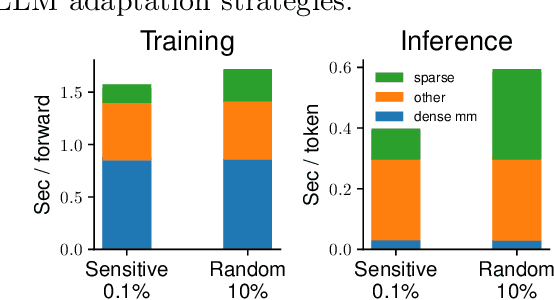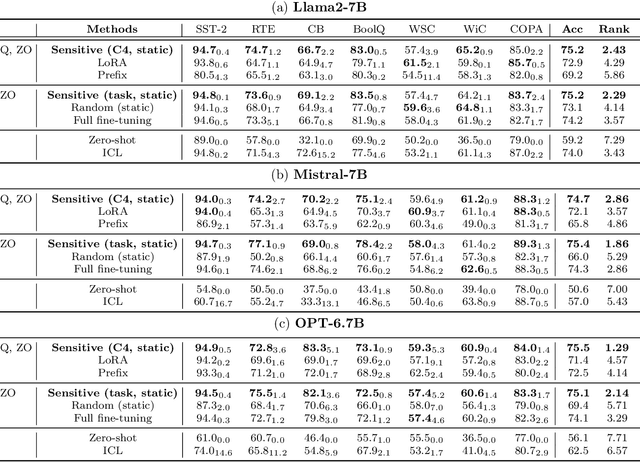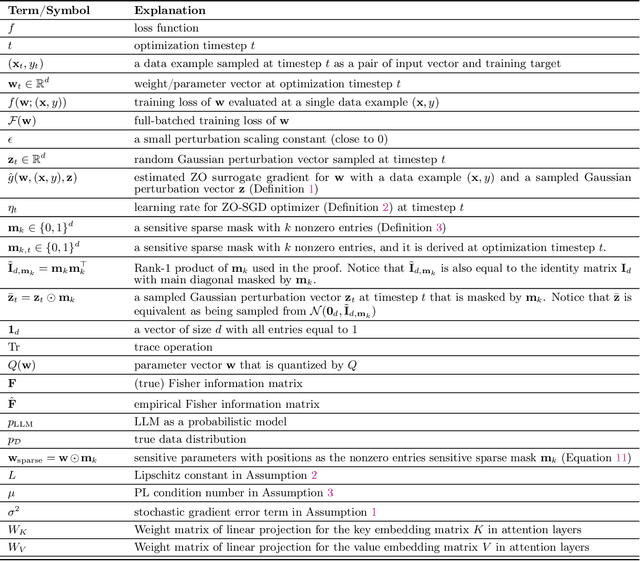Yide Ran
ALinFiK: Learning to Approximate Linearized Future Influence Kernel for Scalable Third-Parity LLM Data Valuation
Mar 02, 2025Abstract:Large Language Models (LLMs) heavily rely on high-quality training data, making data valuation crucial for optimizing model performance, especially when working within a limited budget. In this work, we aim to offer a third-party data valuation approach that benefits both data providers and model developers. We introduce a linearized future influence kernel (LinFiK), which assesses the value of individual data samples in improving LLM performance during training. We further propose ALinFiK, a learning strategy to approximate LinFiK, enabling scalable data valuation. Our comprehensive evaluations demonstrate that this approach surpasses existing baselines in effectiveness and efficiency, demonstrating significant scalability advantages as LLM parameters increase.
Alopex: A Computational Framework for Enabling On-Device Function Calls with LLMs
Nov 07, 2024



Abstract:The rapid advancement of Large Language Models (LLMs) has led to their increased integration into mobile devices for personalized assistance, which enables LLMs to call external API functions to enhance their performance. However, challenges such as data scarcity, ineffective question formatting, and catastrophic forgetting hinder the development of on-device LLM agents. To tackle these issues, we propose Alopex, a framework that enables precise on-device function calls using the Fox LLM. Alopex introduces a logic-based method for generating high-quality training data and a novel ``description-question-output'' format for fine-tuning, reducing risks of function information leakage. Additionally, a data mixing strategy is used to mitigate catastrophic forgetting, combining function call data with textbook datasets to enhance performance in various tasks. Experimental results show that Alopex improves function call accuracy and significantly reduces catastrophic forgetting, providing a robust solution for integrating function call capabilities into LLMs without manual intervention.
ScaleLLM: A Resource-Frugal LLM Serving Framework by Optimizing End-to-End Efficiency
Jul 23, 2024Abstract:Large language models (LLMs) have surged in popularity and are extensively used in commercial applications, where the efficiency of model serving is crucial for the user experience. Most current research focuses on optimizing individual sub-procedures, e.g. local inference and communication, however, there is no comprehensive framework that provides a holistic system view for optimizing LLM serving in an end-to-end manner. In this work, we conduct a detailed analysis to identify major bottlenecks that impact end-to-end latency in LLM serving systems. Our analysis reveals that a comprehensive LLM serving endpoint must address a series of efficiency bottlenecks that extend beyond LLM inference. We then propose ScaleLLM, an optimized system for resource-efficient LLM serving. Our extensive experiments reveal that with 64 concurrent requests, ScaleLLM achieves a 4.3x speed up over vLLM and outperforms state-of-the-arts with 1.5x higher throughput.
Zeroth-Order Fine-Tuning of LLMs with Extreme Sparsity
Jun 05, 2024



Abstract:Zeroth-order optimization (ZO) is a memory-efficient strategy for fine-tuning Large Language Models using only forward passes. However, the application of ZO fine-tuning in memory-constrained settings such as mobile phones and laptops is still challenging since full precision forward passes are infeasible. In this study, we address this limitation by integrating sparsity and quantization into ZO fine-tuning of LLMs. Specifically, we investigate the feasibility of fine-tuning an extremely small subset of LLM parameters using ZO. This approach allows the majority of un-tuned parameters to be quantized to accommodate the constraint of limited device memory. Our findings reveal that the pre-training process can identify a set of "sensitive parameters" that can guide the ZO fine-tuning of LLMs on downstream tasks. Our results demonstrate that fine-tuning 0.1% sensitive parameters in the LLM with ZO can outperform the full ZO fine-tuning performance, while offering wall-clock time speedup. Additionally, we show that ZO fine-tuning targeting these 0.1% sensitive parameters, combined with 4 bit quantization, enables efficient ZO fine-tuning of an Llama2-7B model on a GPU device with less than 8 GiB of memory and notably reduced latency.
 Add to Chrome
Add to Chrome Add to Firefox
Add to Firefox Add to Edge
Add to Edge